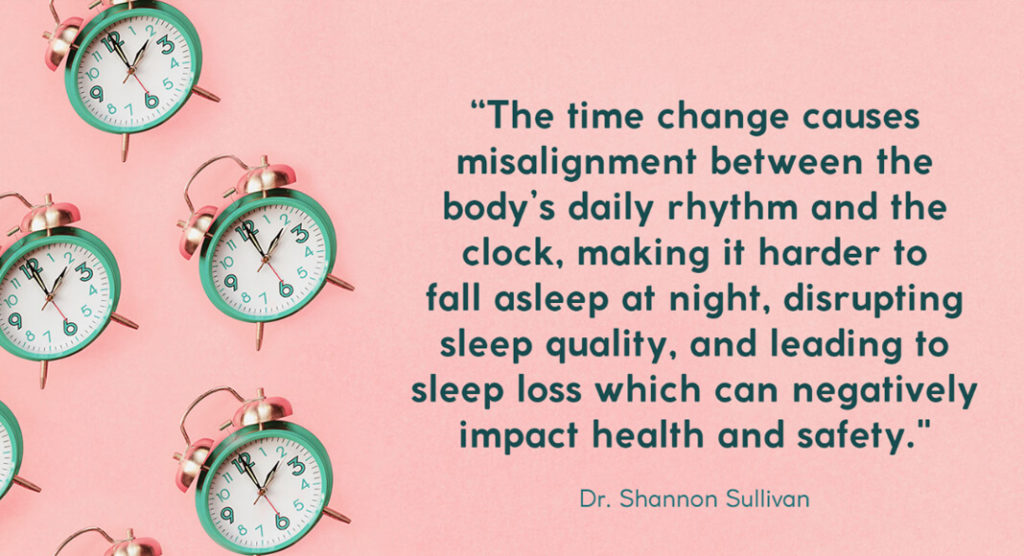
Mega Doctor News
Newswise — If the month of March has you dreading the night when we “spring forward” to daylight saving time, you’re not alone. More than half of Americans say they’re tired after the time change, and 63% of Americans say that they support the elimination of seasonal time changes in favor of a national, fixed, year-round time. According to the American Academy of Sleep Medicine, research supports public opposition to seasonal time changes, and sleep science suggests that permanent standard time is the best option.
Research shows that the time change can disrupt your internal clock and impair your sleep quality. This disruption in your sleep/wake pattern can have dangerous consequences, including an increased risk of motor vehicle accidents, medical errors, cardiovascular events and mood disturbances.
The AASM supports eliminating seasonal time changes and adopting permanent standard time for improved public health and safety. A recent position statement explains that standard time more closely aligns with the body’s internal clock. The AASM and supporting organizations representing health, safety, and education are advocating for permanent standard time legislation.
“Daylight saving time increases our morning exposure to darkness and evening exposure to sunlight, the most powerful timing cue for the human body clock,” said Dr. Shannon Sullivan, chair of the AASM Public Safety Committee and clinical professor of sleep medicine at Stanford University School of Medicine. “The time change causes misalignment between the body’s daily rhythm and the clock, making it harder to fall asleep at night, disrupting sleep quality, and leading to sleep loss which can negatively impact health and safety.”
Studies have found an increase in car accidents during the week following the change to daylight saving time. In addition to the obvious sleep loss, other negative effects include increased risk of stroke and hospital admissions, and increased production of inflammatory markers. A recently published study found an 18.7 percent increase in patient safety-related incidents associated with human error in the week following the transition into and out of daylight saving time.
Sleep Tips for Daylight Saving Time
Before daylight saving time begins in most of the U.S. on Sunday, March 14, there are ways you can prepare to minimize the immediate impact of the time change on your body clock.
“Moving into or out of daylight saving time can have adverse effects on your sleep schedule, so make sure you’re taking appropriate steps to prioritize healthy sleep leading up to and during the time change,” said Dr. Seema Khosla, chair of the AASM Public Awareness Advisory Committee and medical director of the North Dakota Center for Sleep in Fargo.
In the days leading up to the change to daylight saving time, you should:
- Get at least seven hours of sleep (for adults) or eight hours of sleep (for teens) per night before and after the time change. You can use the AASM’s bedtime calculator to identify an appropriate nightly bedtime.
- Gradually adjust your sleep and wake times. Shift your bedtime 15 to 20 minutes earlier each night for a few nights before the time change.
- Adjust other daily routines — such as mealtimes — to match your new schedule prior to the time change.
- Set your clocks ahead one hour on Saturday evening, March 13, and go to bed at your normal bedtime.
- Head outside for some sunlight on Sunday morning. The bright light will help set your body clock, which regulates the timing of sleep and alertness.
- Get plenty of sleep on Sunday night to ensure you’re rested and ready for the week ahead.
For more information, read the Daylight Saving Time Health Advisory from the American Academy of Sleep Medicine.











